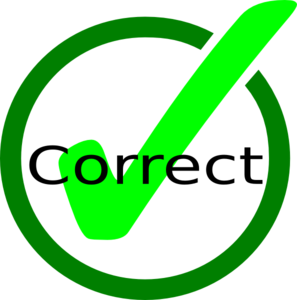| 正面 | 1805.correct 英 [kə'rekt]美 [kə'rɛkt]     |
|---|---|
| 背面 |      释义: pursue 追求,追随 “追求女孩,不要怕输”vt. 改正;告诫vi. 调整;纠正错误adj. 正确的;恰当的;端正的 例句: 1. "That is correct, Meg," he answered in his cold, dead voice.“没错,梅格。”他用冰冷、阴沉的声音答道。 correct 正确的cor-, 强调。-rect, 直,正确,词源同erect, right . correctcorrect: [14] Correct is etymologically related to rectitude and rightness. It comes from the past participle of Latin corrigere ‘make straight, put right’, a compound verb formed from the intensive prefix com- and regere ‘lead straight, rule’. This regere (source of English regent, régime, regiment, and region) goes back to an Indo-European base *reg- ‘move in a straight line’, which also produced English right, rectitude, regal, royal, and rule. In English the verb correct by a long time predates the adjective, which first appeared (via French) in the 17th century.=> escort, regal, region, right, royal, rulecorrect (v.)mid-14c., "to set right, rectify" (a fault or error), from Latin correctus, past participle of corrigere "to put straight, reduce to order, set right;" in transferred use, "to reform, amend," especially of speech or writing, from com-, intensive prefix (see com-), + regere "to lead straight, rule" (see regal). Originally of persons; with reference to writing, etc., attested from late 14c. Related: Corrected; correcting.correct (adj.)1670s, from French correct "right, proper," from Latin correctus (see correct (v.)). Related: Correctly; correctness." |